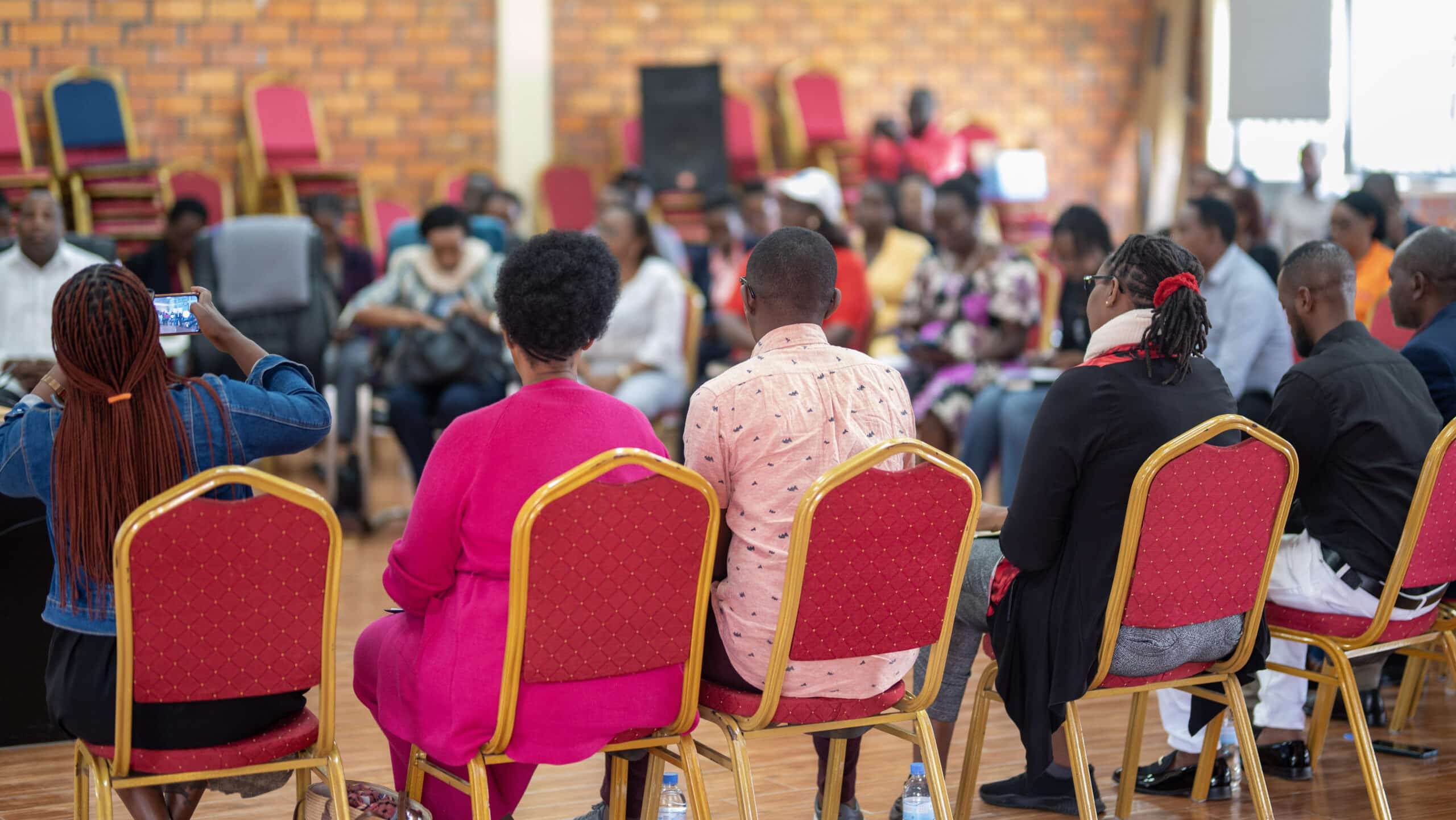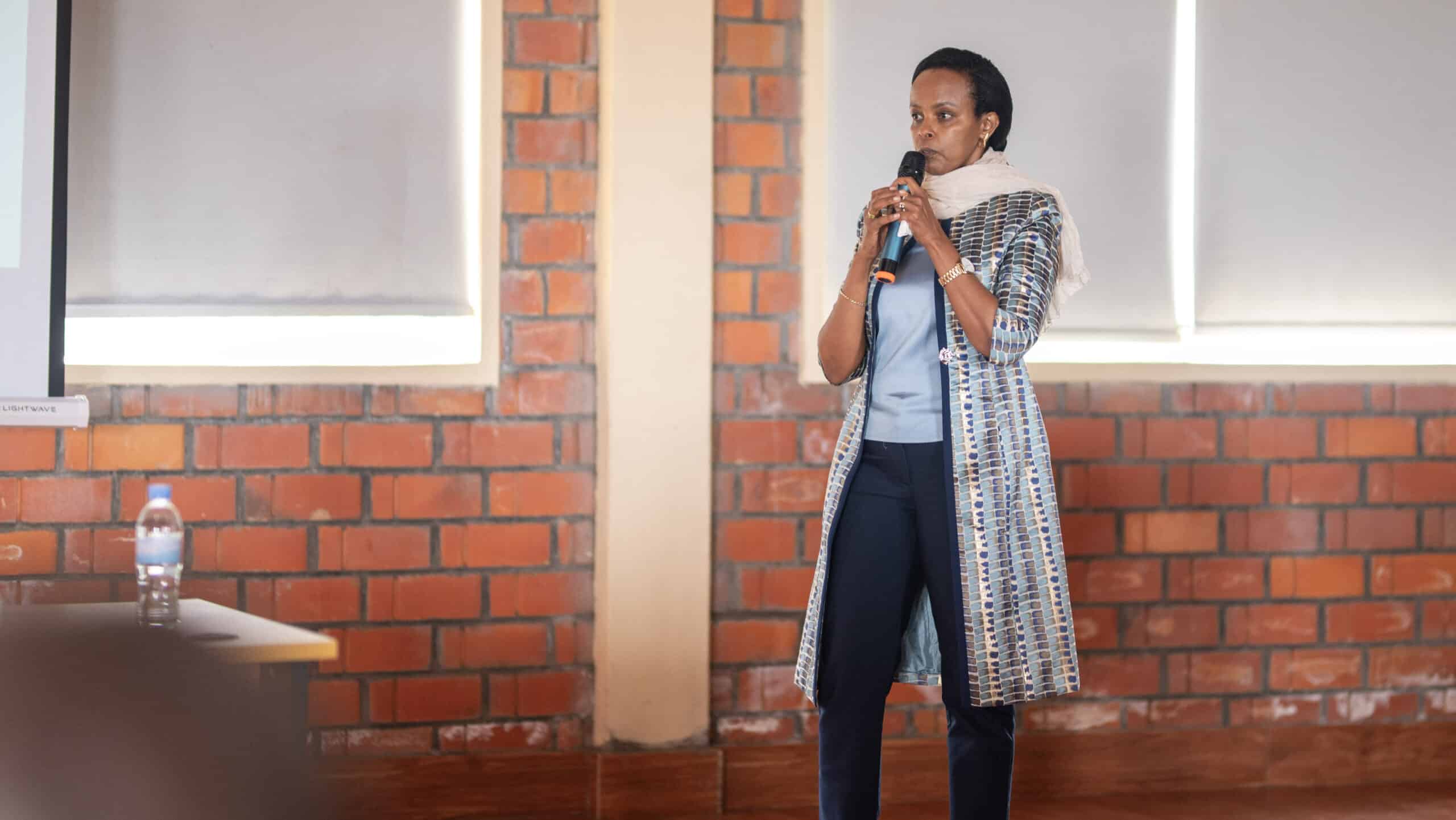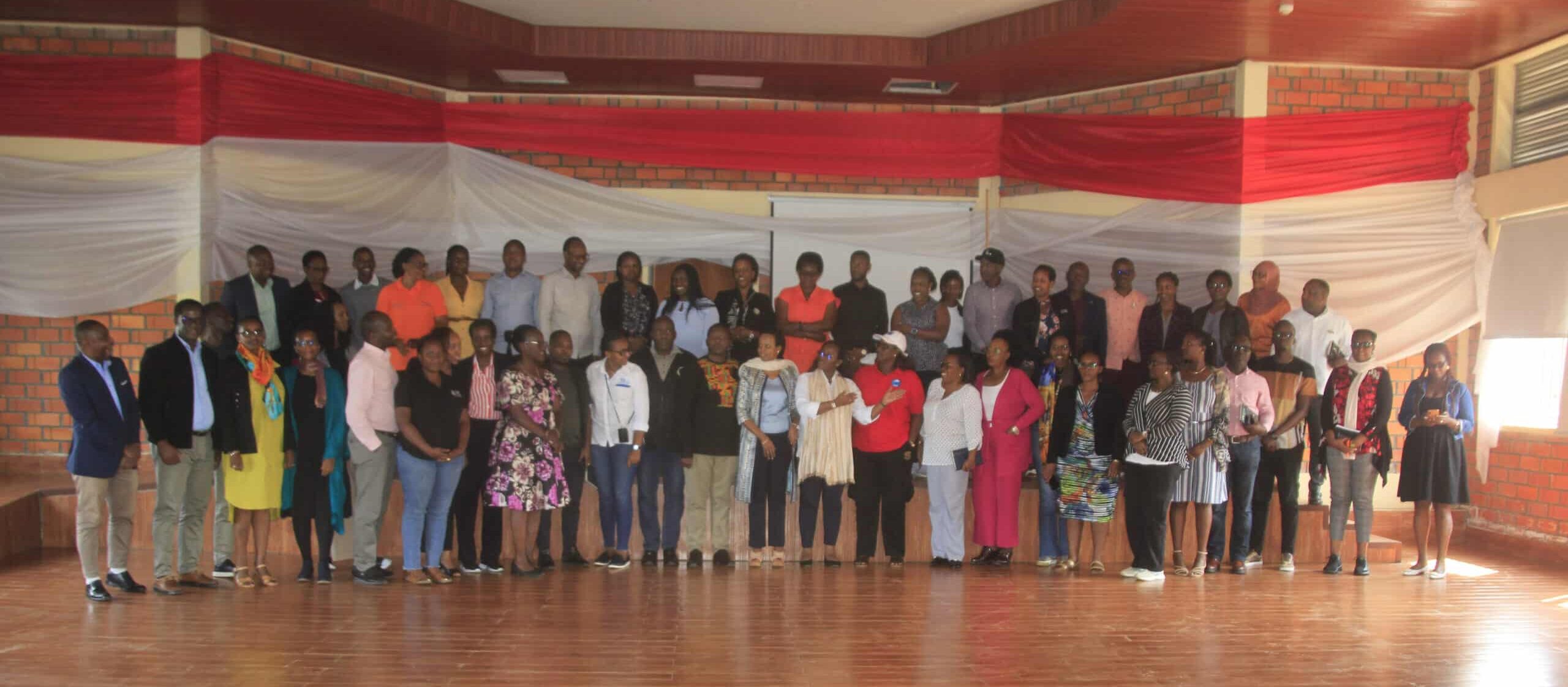Late last month, our Rwanda team partnered with the country’s Ministry of Gender and Family Promotion (MIGEPROF), to organise a two-day field visit to Musanze district in the north of the country.
The visit brought together almost 50 participants – including government agencies, UN agencies, and both local and international organisations – with the aim of increasing understanding of the issues facing adolescent mothers and families with children with disabilities, and improving the support they receive.
This strategic engagement provided an opportunity for our team to share its holistic models of intervention to support adolescent mothers and children with disabilities; and to strengthen national advocacy efforts aimed at preventing family separation and ending the institutionalisation of children.
Day One – Essential support
On the first day of the visit, attendees met with adolescent mothers and their parents, and the parents of children with disabilities. Parents and adolescent mothers spoke about how the approach of supporting families within their communities is making a real difference and helping to improve lives.
Having access to consistent psychosocial support, economic empowerment, and community acceptance, has meant many adolescent mothers have healed from the trauma they’ve experienced, rebuilt their confidence, and become resilient, empowered, and active members of their communities.
Parents of children with disabilities also shared how the support has strengthened their ability to care for their children with disabilities, advocate for inclusion, and participate more fully in community life.
Without these kinds of support, adolescent mothers and the families of children with disabilities would be under much greater pressures, and there would be a significant risk of those pressures resulting in their children being placed in institutions.

Day Two – Sharing a model that works
On the second day of the visit, our Rwanda Country Director Vidivi Karangwa Immaculee gave a presentation explaining how our support model for adolescent mothers is adapted to each mother at the individual level – helping them recover from psychological wounds and experiences of poverty, family rejection or school dropout.
Vidivi also highlighted the hugely important role that community volunteers and local leaders play by visiting families, identifying their needs, and linking them to appropriate services. Often they are the first point of contact on a family’s path to getting the support they need – vital interventions that are changing, and in some cases saving, lives.
Sharing Hope and Homes for Children’s experience working with families of children with disabilities, Vidivi showed how our family-centered, holistic approach supports healing, inclusion, and long-term family unity.

It was extremely encouraging that following Vidivi’s talk, MIGEPROF encouraged their partners and other attendees to adopt the holistic model used by Hope and Homes for Children when supporting adolescent mothers for their own holistic approach. This is a significant advocacy milestone for our work to prevent institutionalisation of children and family separation.
We were especially honoured that the Permanent Secretary of MIGEPROF, Mrs. Mireille Batamuriza, attended and spoke at this event. She emphasised the importance of strong collaboration and partnership to prevent and respond to adolescent pregnancies, reduce stigma, and ensure long-term support for adolescent mothers across Rwanda.
Your support is helping end orphanages
Events like these play a vital role in improving the sharing of information and developing effective practice when it comes to supporting children and families – and it’s your support that makes these events possible.
In Rwanda, both adolescent mothers and the families of children with disabilities face unique pressures – social stigma, a lack of appropriate support, and difficulty accessing the help they need – that often force them to place their children in institutions.
But by developing effecting support models that tackle these pressures head on and ensure families are able to stay together, we’re proving that orphanages are no longer necessary, and helping more children in Rwanda to grow up in safe, loving families.

